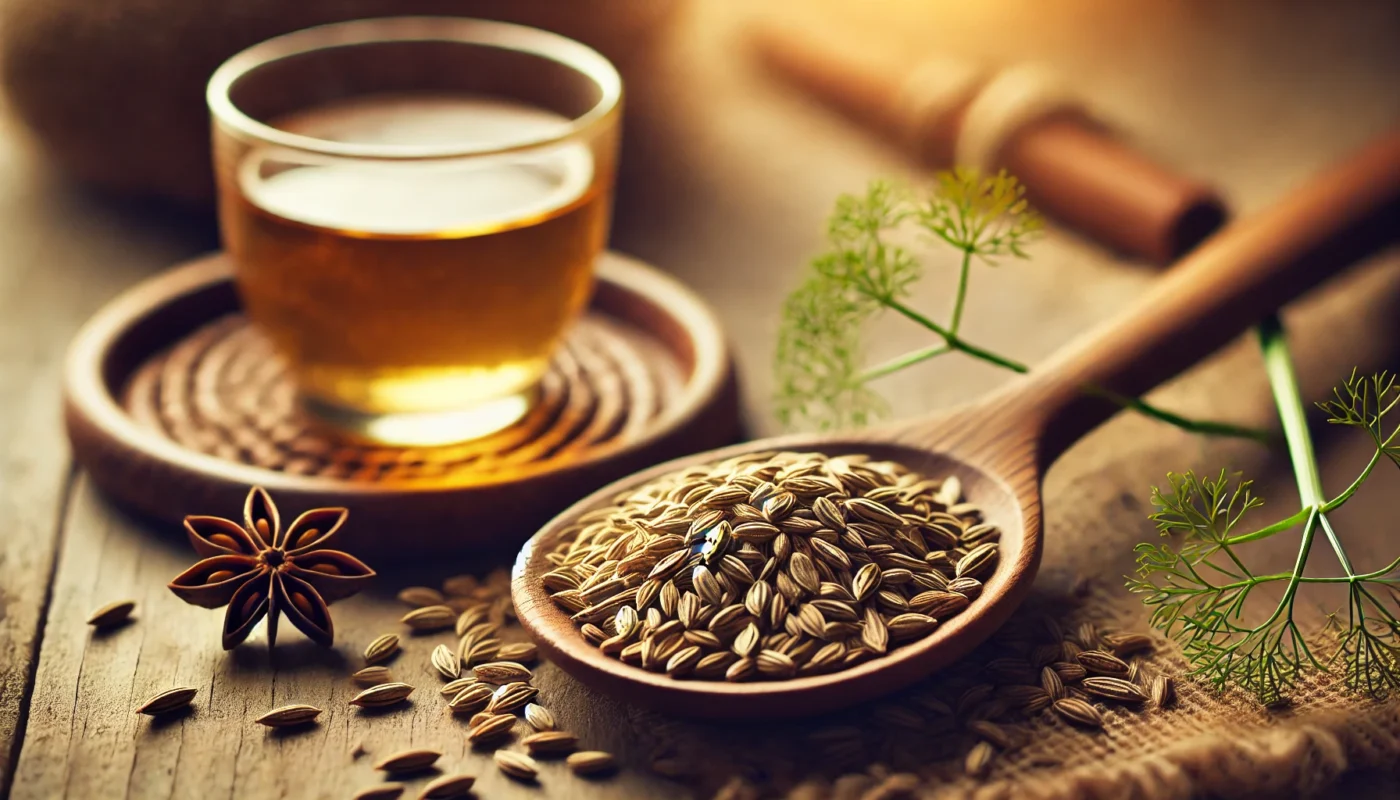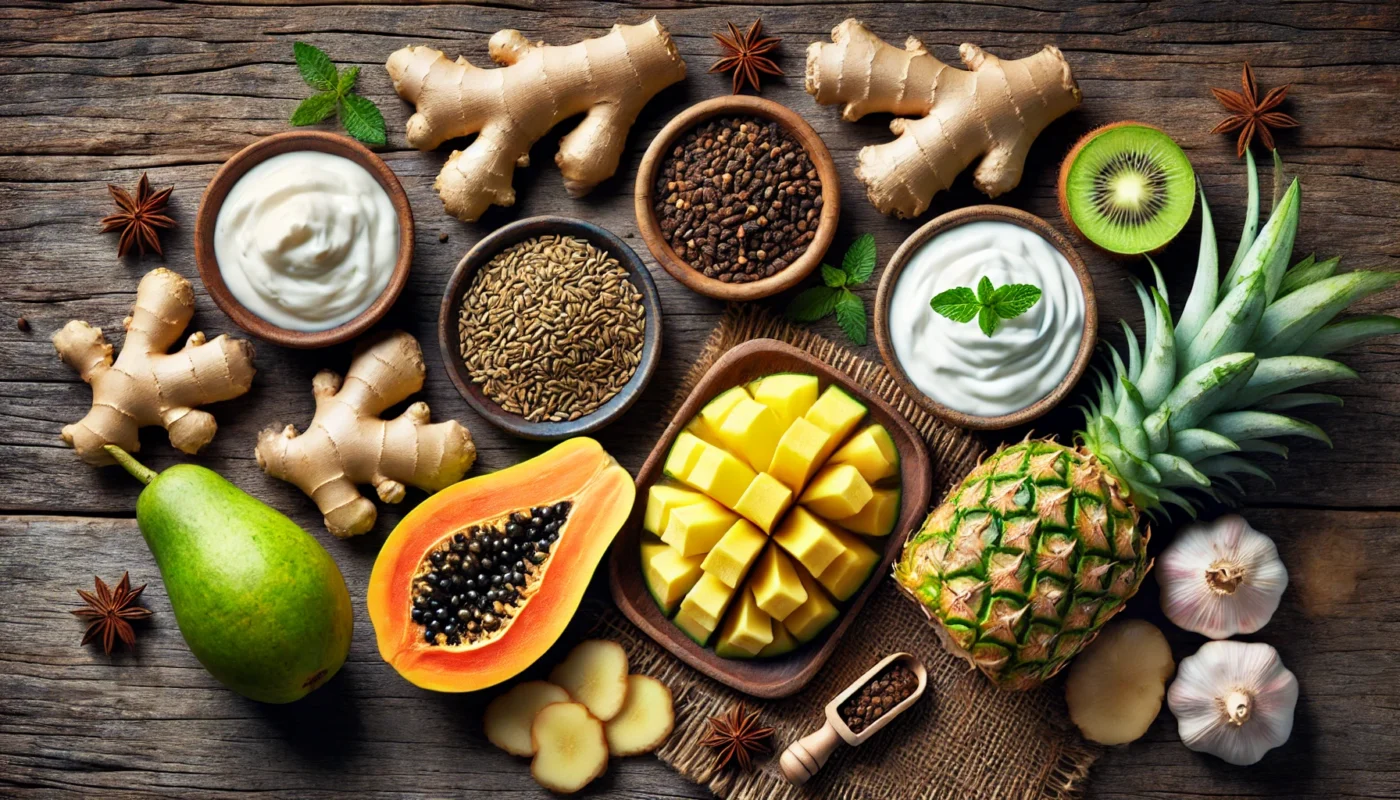Bloating can be an uncomfortable and often embarrassing condition, characterized by a feeling of fullness or swelling in the abdomen. It is a common complaint that can affect individuals of all ages, and while it is often benign, it can sometimes indicate an underlying health issue. Understanding the causes of bloating is the first step towards finding effective relief.
You May Also Like: Managing Pain Through Dietary Choices
The Anatomy of Bloating
What Happens in the Body
Bloating occurs when the gastrointestinal tract becomes filled with air or gas. This sensation can be accompanied by visible distention and increased abdominal girth. The stomach and intestines may stretch, causing discomfort or pain. The mechanisms behind bloating can be complex, often involving multiple factors such as diet, lifestyle, and individual health conditions.
The Role of Gas Production
Gas production is a natural part of the digestive process, but excessive gas can lead to bloating. This gas is primarily composed of nitrogen, oxygen, carbon dioxide, hydrogen, and methane. It can be a by-product of digesting certain foods, swallowing air, or the fermentation of undigested food in the colon. Understanding the sources of gas can help manage bloating effectively.
Psychological Factors
Stress and anxiety can also contribute to bloating. The gut-brain connection is a well-documented phenomenon where emotional stress can impact gut health, leading to symptoms like bloating. Managing stress through techniques such as meditation, yoga, or deep-breathing exercises can aid in reducing bloating.
Common Triggers of Bloating
Overeating and Portion Control
Overeating is one of the most common causes of bloating. When the stomach is overloaded, it stretches to accommodate the food, leading to discomfort. Practicing portion control and mindful eating can help minimize this trigger. Eating smaller, more frequent meals can also aid in digestion and prevent bloating.
Swallowing Air
Swallowing air, known as aerophagia, can occur when eating too quickly, talking while eating, or chewing gum. This can lead to an accumulation of air in the stomach, contributing to bloating. Being conscious of your eating habits and making adjustments can reduce the intake of air.
Food Intolerances and Allergies
Certain food intolerances, such as lactose or gluten intolerance, can cause bloating. The body’s inability to digest these substances properly leads to fermentation in the gut and gas production. Identifying and eliminating trigger foods through an elimination diet can help alleviate symptoms.
Medical Conditions Linked to Bloating
Digestive Disorders
Digestive disorders like irritable bowel syndrome (IBS), small intestinal bacterial overgrowth (SIBO), and gastroesophageal reflux disease (GERD) can cause chronic bloating. These conditions often require medical diagnosis and treatment. Understanding the underlying disorder is essential for managing symptoms effectively.
Hormonal Changes
Hormonal fluctuations, particularly in women, can lead to bloating. Changes in estrogen and progesterone levels during the menstrual cycle can cause water retention and bloating. Keeping track of these changes and discussing them with a healthcare provider can provide insights and potential solutions.
Other Health Issues
Other health conditions, such as constipation, can also contribute to bloating. When waste material accumulates in the intestines, it can lead to increased gas and a feeling of fullness. Addressing constipation through diet, hydration, and exercise can help reduce bloating.

Foods That Cause Bloating and Inflammation
Certain foods are notorious for causing bloating and inflammation, and should be limited or avoided for those prone to these issues.
Swollen Foods
Understanding Complex Carbohydrates
Swollen foods, such as beans, lentils, and cruciferous vegetables (broccoli, cauliflower, cabbage, and Brussels sprouts), contain complex carbohydrates that can be challenging for the digestive system to break down. These foods contain raffinose, a type of carbohydrate that the human body struggles to digest, leading to gas production.
The Nutritional Benefits
Despite their potential to cause bloating, these foods are nutrient-dense. They provide essential vitamins, minerals, and fiber, which are important for overall health. Moderation is key, and gradually increasing their intake may help your digestive system adjust over time.
Cooking Techniques to Reduce Gas
Certain cooking methods can help reduce the gas-producing potential of these foods. Soaking beans before cooking, thoroughly cooking cruciferous vegetables, and incorporating digestive spices like cumin and coriander can make them easier to digest.
Foods High in Salt and Sugar
The Impact of Sodium
High-sodium foods, such as processed snacks, canned soups, and fast food, can cause water retention, leading to a feeling of fullness and swelling. Reducing sodium intake can help alleviate bloating. Reading labels and choosing low-sodium options can significantly impact your diet.
Sugar and Gut Health
Similarly, high-sugar foods and beverages can disrupt the gut microbiota and promote inflammation, exacerbating bloating. Excess sugar feeds harmful bacteria in the gut, leading to an imbalance that can cause digestive issues. Opting for natural sweeteners or reducing overall sugar consumption can support a healthier gut.
Artificial Sweeteners
Artificial sweeteners, found in diet sodas and sugar-free products, can also cause bloating. Ingredients like sorbitol and xylitol are not fully absorbed by the body and can ferment in the intestines, leading to gas. Being mindful of these ingredients can help manage bloating.
Dairy Products
Lactose Intolerance
Lactose, the sugar found in milk, can be difficult for some individuals to digest, particularly those with lactose intolerance. This can lead to gas, bloating, and discomfort. The deficiency of lactase, an enzyme required to digest lactose, is the root cause of this intolerance.
Exploring Alternatives
Consider experimenting with lactose-free alternatives such as almond milk, soy milk, or lactose-free dairy products to determine if dairy is a trigger for you. These alternatives can provide similar nutritional benefits without the discomfort.
Gradual Reintroduction
For those who enjoy dairy, gradually reintroducing small amounts of dairy into your diet and monitoring your body’s response can help identify tolerance levels. This approach allows for some flexibility while managing symptoms.
Carbonated Beverages
The Role of Carbon Dioxide
Carbonated beverages, such as soda and sparkling water, contain carbon dioxide gas, which can lead to a build-up of gas in the digestive system and result in bloating. The bubbles in these drinks expand in the stomach, causing discomfort.
Hydration Alternatives
Limiting or avoiding these drinks can help alleviate symptoms. Opt for still water, herbal teas, or infused water with fruits and herbs as refreshing alternatives that promote hydration without the added gas.
Moderation and Choice
If carbonated drinks are a favorite, consuming them in moderation and choosing those with lower sugar content can reduce their bloating effect. Experimenting with different options can help find a balance between enjoyment and digestive comfort.

Foods to Reduce Bloating and Inflammation
Incorporating foods that reduce bloating and inflammation into your diet can provide relief and support digestive health.
Ginger
Historical Uses and Benefits
Ginger is a natural anti-inflammatory and digestive aid that has been used for centuries to relieve bloating and nausea. Its active compounds, such as gingerol, have been shown to improve digestion and reduce inflammation in the gut.
Ways to Incorporate Ginger
It can be consumed fresh, as a tea, or in supplement form. Adding ginger to your meals or sipping ginger tea may help soothe the digestive tract and reduce bloating. Fresh ginger can be added to smoothies, soups, and stir-fries for a flavorful twist.
Therapeutic Dosages
For those seeking more targeted relief, ginger supplements are available. Consulting with a healthcare provider can help determine appropriate dosages to maximize benefits while minimizing potential side effects.
Fennel
Digestive Properties
Fennel seeds contain compounds that relax the muscles in the gastrointestinal tract and allow trapped gas to dissipate. Anethole, a major component of fennel, has been shown to have anti-inflammatory and antispasmodic properties.
Culinary Uses
Chewing on fennel seeds or brewing them into a tea can provide relief from bloating and support healthy digestion. Fennel can also be used in cooking, adding a unique flavor to dishes while promoting digestive health.
Fennel Tea Recipe
A simple fennel tea can be made by crushing a teaspoon of fennel seeds and steeping them in hot water for 5-10 minutes. This soothing tea can be enjoyed after meals to aid digestion and reduce bloating.
Peppermint
Mechanism of Action
Peppermint oil has antispasmodic properties that can help relax the digestive system and alleviate bloating. Menthol, the active ingredient, can soothe the muscles of the gastrointestinal tract, reducing spasms and discomfort.
Incorporating Peppermint
Drinking peppermint tea or using peppermint oil capsules can be an effective way to incorporate this remedy into your routine. Peppermint tea is a refreshing option that can be consumed hot or cold.
Precautions and Considerations
While peppermint is generally safe, individuals with gastroesophageal reflux disease (GERD) should use caution, as it may exacerbate symptoms. Consulting with a healthcare provider can provide personalized guidance.
Probiotic-Rich Foods
Importance of a Balanced Microbiome
Probiotics are beneficial bacteria that support gut health and promote a balanced microbiome. A diverse and balanced gut microbiota is essential for proper digestion and overall health.
Sources of Probiotics
Consuming probiotic-rich foods, such as yogurt, kefir, sauerkraut, and kimchi, can help improve digestion and reduce bloating. These fermented foods introduce beneficial bacteria into the gut, aiding in digestion and reducing inflammation.
Probiotic Supplements
For those who may not consume enough probiotic-rich foods, supplements are available. These should be chosen carefully, with attention to the strains and potency, to ensure they meet individual health needs.
Papaya and Pineapple
Enzymatic Benefits
Papaya and pineapple contain enzymes (papain and bromelain, respectively) that aid in the breakdown of proteins, facilitating digestion and reducing bloating. These enzymes help ease the digestive process, reducing the burden on the stomach and intestines.
Culinary Uses
Incorporating these fruits into your diet can provide digestive support and help alleviate symptoms. They can be enjoyed fresh, in smoothies, or as part of salads and desserts.
Potential Allergies
While these fruits are beneficial, some individuals may have allergies or sensitivities. Monitoring your body’s reaction and consulting with a healthcare provider can ensure safe consumption.

Practical Tips for Managing Bloating
In addition to dietary changes, adopting certain lifestyle practices can further support bloating relief.
Stay Hydrated
Importance of Hydration
Drinking plenty of water throughout the day can help flush out excess sodium and reduce water retention, alleviating bloating. Proper hydration supports all bodily functions, including digestion.
Water and Herbal Teas
Aim to drink at least eight glasses of water daily, and consider herbal teas for added digestive benefits. Herbal teas like chamomile, peppermint, and ginger can provide both hydration and relief from digestive discomfort.
Timing and Consistency
Consistent hydration throughout the day is key. Sipping water before and during meals can aid digestion, while avoiding excessive fluid intake immediately after meals can prevent dilution of digestive enzymes.
Practice Mindful Eating
Benefits of Mindfulness
Eating slowly and mindfully can help reduce the amount of air swallowed during meals, which can contribute to bloating. Mindful eating involves being present and aware of the eating experience, promoting better digestion.
Techniques for Mindful Eating
Chew your food thoroughly and avoid talking while eating to minimize air intake. Focus on the flavors and textures of your food, and listen to your body’s hunger and fullness cues.
Setting the Environment
Creating a calming environment for meals can enhance the mindful eating experience. Eliminating distractions such as screens and taking a moment to appreciate your meal can improve digestion and satisfaction.
Incorporate Regular Exercise
Exercise and Digestion
Regular physical activity can support healthy digestion and reduce bloating by promoting the movement of gas through the digestive system. Exercise stimulates the intestines, helping to move food and gas through more efficiently.
Types of Exercise
Aim for at least 30 minutes of moderate exercise most days of the week. Activities like walking, jogging, yoga, and cycling can all be beneficial for promoting digestion and reducing bloating.
Exercise Timing
Exercising after meals, such as taking a leisurely walk, can aid digestion and reduce the risk of bloating. Finding a routine that fits your lifestyle and preferences will encourage consistency.
Monitor Portion Sizes
Importance of Moderation
Overeating can lead to bloating and discomfort, so it’s important to be mindful of portion sizes. Large meals can overwhelm the digestive system, leading to fermentation and gas production.
Strategies for Control
Consider eating smaller, more frequent meals to support digestion and prevent bloating. Using smaller plates and serving utensils can help control portions and prevent overconsumption.
Listen to Your Body
Tuning into your body’s signals of hunger and fullness can guide portion control. Eating until satisfied, rather than stuffed, can prevent bloating and support overall digestive health.
Conclusion
Bloating can be an uncomfortable and frustrating condition, but with the right dietary and lifestyle changes, relief is achievable. By identifying and avoiding foods that cause bloating and inflammation, and incorporating foods and practices that promote digestive health, you can support a healthy, balanced gut and reduce bloating.
Personalized Approach
Remember, it’s essential to listen to your body and make adjustments based on your individual needs and responses. Everyone’s digestive system is unique, and what works for one person may not work for another. Experimentation and patience are key.
When to Seek Help
If bloating persists or worsens, consider consulting with a healthcare professional for further evaluation and guidance. Persistent bloating may indicate an underlying health issue that requires medical attention.
Embrace Holistic Health
Embrace these holistic approaches to reduce bloating and support your overall health and wellbeing. By combining dietary changes, lifestyle adjustments, and stress management techniques, you can achieve a more comfortable and balanced digestive experience.
Further Reading:
15 Foods That Can Cause Bloating
Bloating: Causes and Prevention Tips
With High Fiber Diets, More Protein May Mean More Bloating
probiotics, gut health, microbiome, digestion, bloating relief, dietary tips, holistic health, enzymes, mindful eating, hydration, exercise, digestive health, personalized approach, health and wellness
Important Note: The information contained in this article is for general informational purposes only, and should not be construed as health or medical advice, nor is it intended to diagnose, prevent, treat, or cure any disease or health condition. Before embarking on any diet, fitness regimen, or program of nutritional supplementation, it is advisable to consult your healthcare professional in order to determine its safety and probable efficacy in terms of your individual state of health.
Regarding Nutritional Supplements Or Other Non-Prescription Health Products: If any nutritional supplements or other non-prescription health products are mentioned in the foregoing article, any claims or statements made about them have not been evaluated by the U.S. Food and Drug Administration, and such nutritional supplements or other health products are not intended to diagnose, treat, cure, or prevent any disease.

